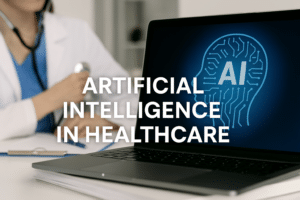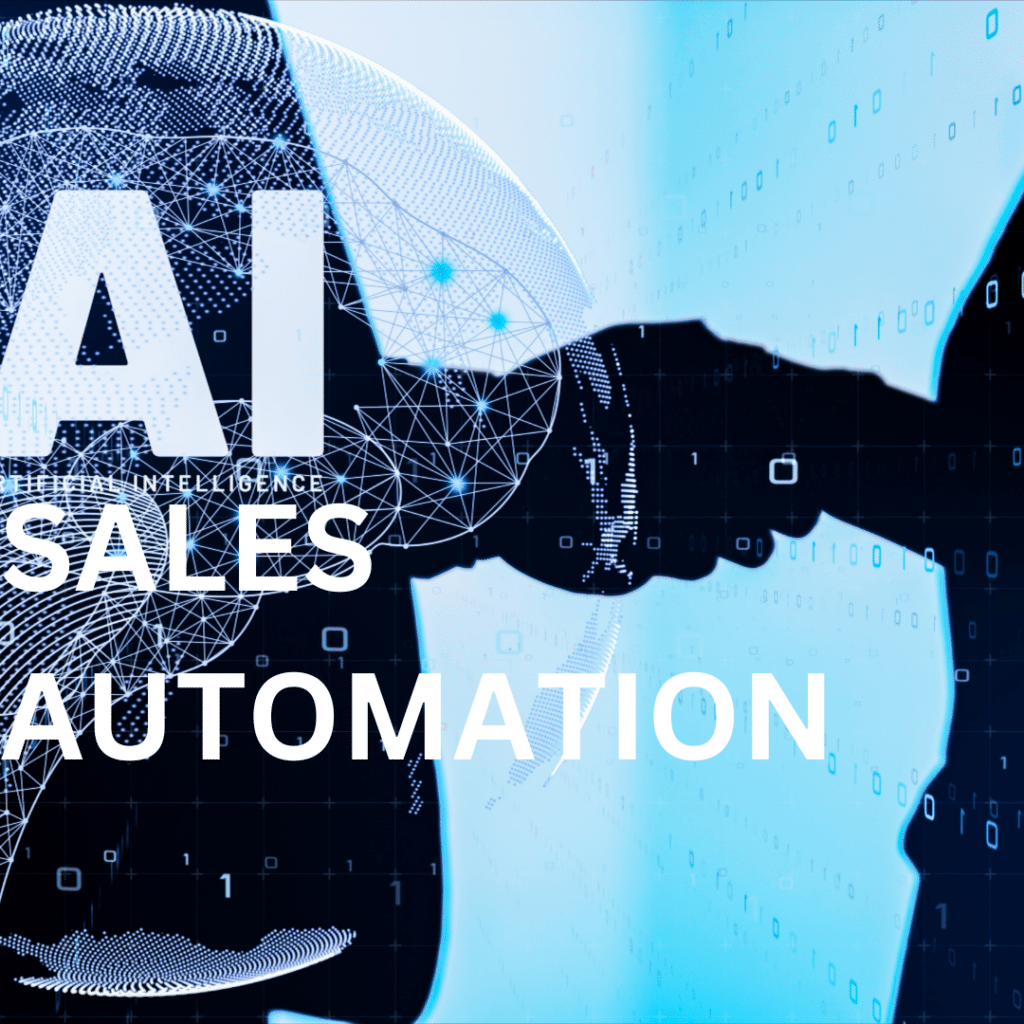As the world becomes increasingly interconnected and technology-driven, the healthcare industry is witnessing a paradigm shift fueled by advancements in artificial intelligence (AI). The integration of AI in healthcare is not just a trend but a transformative force that is redefining patient care and administrative processes. This article delves into how AI is revolutionizing the healthcare sector, enhancing patient outcomes, streamlining operations, and paving the way for innovative applications that promise to reshape the future of healthcare delivery.
How is AI in Healthcare Revolutionizing Patient Care?
What are the benefits of AI in healthcare for patients?
AI in the healthcare sector has many advantages for patients, most notably by increasing the quality of care they are given. Perhaps the main benefit is that AI can deliver tailored treatment plans according to one’s medical history and health information. Using AI algorithms, medical staff can scan large quantities of medical data to determine patterns and forecast possible risks to a patient’s health. This ability enables proactive interventions, thus enhancing patient outcomes and satisfaction. In addition, AI technologies can aid real-time monitoring of patient’s health status, allowing for timely modifications of treatments as required. The application of AI in treating patients eventually results in precise diagnoses, minimization of human errors, and customized therapeutic plans that address the individual needs of every patient.

How can AI improve patient outcomes in treatment?
AI holds the promise to transform patient outcomes in treatment through its capacity to examine intricate health data and aid in clinical decision-making. For example, AI systems are capable of analyzing medical images, including X-rays and MRIs, with high precision, and they can aid healthcare professionals in the early detection of diseases, such as cancer. AI in healthcare practice also helps create predictive models that anticipate disease progression, enabling timely interventions to save lives. With the power of artificial intelligence and machine learning, healthcare providers can optimize treatment protocols, improve medication management, and deliver the most appropriate therapies based on patients’ conditions. These developments not only result in better recovery rates but also lower the cost of healthcare, and it benefits the whole healthcare system.
What examples of AI in healthcare demonstrate its impact on patient care?
Several examples show the significant role of AI applications in healthcare. A good example is the application of AI in radiology, where AI algorithms have been created to help radiologists interpret medical images. These AI solutions are able to detect anomalies with high accuracy, thus improving diagnostic quality. Another such instance is the use of AI-powered chatbots that give patients direct access to medical counsel, appointment booking, and medication reminders. These AI solutions have been constructive in the management of long-term conditions like diabetes, where constant watchfulness and patient activation are essential for better management. Overall, the use of artificial intelligence in medicine is paying dividends, transforming patient care, and encouraging more proactive health management.
What are the Key Applications of Artificial Intelligence in Healthcare?
What AI solutions are currently used in the healthcare industry?
The healthcare industry is increasingly adopting a variety of AI solutions to enhance patient care and streamline operations. One prominent application is the use of AI in electronic health records (EHRs), where AI technologies help in the management and analysis of health data. These systems can automate administrative tasks, reduce errors in data entry, and provide healthcare providers with valuable insights into patient health trends. Another significant AI application is in predictive analytics, where AI models analyze historical health data to forecast future health outcomes, enabling healthcare organizations to allocate resources more effectively and design preventive strategies. Additionally, AI is being leveraged in drug discovery and clinical trials, where it accelerates the identification of potential drug candidates and optimizes trial designs, ultimately expediting the delivery of new therapies to patients.
How do healthcare providers integrate AI into their systems?
The integration of AI into healthcare systems requires a strategic approach that encompasses technological, operational, and human factors. Healthcare providers typically begin by identifying specific areas where AI can add value, such as diagnostics, patient engagement, or resource management. Following this assessment, they may collaborate with AI research organizations and technology vendors to develop tailored AI solutions that align with their operational goals. The successful implementation of AI also necessitates training for healthcare professionals, ensuring they are equipped to effectively use AI tools and interpret the insights generated. Moreover, the integration of AI is often accompanied by the need for robust data governance frameworks to protect patient privacy and ensure compliance with healthcare regulations. As healthcare organizations embrace the adoption of AI, they pave the way for a more efficient and effective healthcare delivery system.
What are the most common applications of AI in healthcare?
Some of the most common applications of AI in healthcare include diagnostic imaging, where AI algorithms assist in analyzing medical images for abnormalities; natural language processing (NLP), which enables the extraction of meaningful information from unstructured data such as clinical notes; and predictive analytics, which helps in forecasting patient outcomes based on historical data. Additionally, AI is being used in telemedicine platforms to provide virtual consultations, enhancing accessibility and convenience for patients. The implementation of AI in healthcare chatbots is also gaining traction, offering patients immediate assistance with their queries and improving engagement in their care processes. Through these applications, AI is not only streamlining workflows but also enhancing the overall patient experience.
How Can Healthcare Organizations Use AI to Enhance Administration?
What AI tools can streamline healthcare administration?
Healthcare organizations are increasingly leveraging AI tools to streamline administrative processes, thereby enhancing operational efficiency. Automated scheduling systems optimize appointment bookings, reduce wait times, and improve patient flow using AI. These systems analyze patterns in patient behavior and preferences, ensuring effective resource allocation. AI-driven billing and coding systems minimize errors in claims processing, speed up reimbursements, and lighten administrative workloads for healthcare staff. Healthcare organizations also apply AI to manage supply chain logistics, predict inventory needs, and optimize procurement, ensuring adequate medical supplies. By adopting these AI solutions, healthcare providers cut operational costs and enhance service delivery.
How does the use of AI in healthcare improve operational efficiency?
The use of advanced technology significantly improves operational efficiency by automating routine tasks, reducing administrative burdens, and enhancing decision-making processes. For instance, automation can streamline patient data entry and retrieval, allowing medical professionals to focus more on care rather than paperwork. Additionally, intelligent systems analyze workflows to identify bottlenecks and inefficiencies, helping organizations optimize processes and resource allocation. Predictive maintenance for medical devices also ensures optimal functionality, minimizing downtime and improving service reliability. Overall, integrating smart solutions into administration enhances productivity and supports a more patient-centered approach to care.
What are the challenges of implementing AI solutions in healthcare administration?
Despite the numerous advantages of AI solutions in healthcare administration, several challenges exist that can hinder their implementation. One of the primary obstacles is the resistance to change among healthcare professionals who may be wary of adopting new technologies. This apprehension can stem from concerns about job displacement or a lack of understanding of AI’s benefits. Additionally, the implementation of AI requires significant investment in technology and training, which may be a barrier for some healthcare organizations, particularly smaller practices. Data privacy and security are also critical concerns, as the integration of AI necessitates the use of sensitive health data. Ensuring compliance with regulations and safeguarding patient information are paramount for successful AI implementation. Addressing these challenges requires a comprehensive strategy that includes education, stakeholder engagement, and robust data governance frameworks.
What are Some Real-World Examples of AI in Healthcare?
What are notable cases of AI in healthcare success stories?
Several real-world examples showcase the success of AI applications in healthcare, demonstrating their potential to improve patient care and operational efficiencies. One such success story is the deployment of IBM Watson in oncology, where the AI system assists oncologists in identifying personalized treatment options for patients based on their unique genetic profiles and medical histories. Another notable case is the use of AI in predicting patient deterioration in hospitals. AI algorithms analyze real-time data from patient monitoring systems to flag potential complications, allowing healthcare providers to intervene before a patient’s condition worsens. These examples highlight the transformative impact of AI technologies in enhancing clinical outcomes and patient safety.
How are AI technologies transforming public health initiatives?
AI technologies are playing a vital role in transforming public health initiatives by enabling data-driven decision-making and improving health surveillance. For instance, AI applications are being used to analyze social media trends and health data to track disease outbreaks and monitor public health trends. Moreover, AI-driven predictive models can forecast the spread of infectious diseases, allowing public health officials to allocate resources effectively and implement preventive measures. Additionally, AI technologies are facilitating targeted health campaigns by identifying populations at risk and tailoring interventions accordingly. Through these applications, AI is significantly enhancing the ability of public health organizations to respond to health crises and promote community well-being.
What examples of AI applications in healthcare are leading the way?
Several pioneering AI applications in healthcare are leading the way in innovation and effectiveness. For example, Google’s DeepMind has developed AI algorithms that can analyze eye scans to detect early signs of diseases such as diabetic retinopathy and age-related macular degeneration with remarkable accuracy. Similarly, AI-powered wearable devices are revolutionizing patient monitoring, providing continuous health data that can inform treatment decisions and lifestyle modifications. These advancements in AI applications not only improve individual patient care but also contribute to broader public health goals by promoting preventive care and early intervention strategies.
What Future Trends Can We Expect with AI in Healthcare?
How could AI continue to revolutionize the healthcare sector?
Technology is set to keep transforming the medical sector through continuous advancements and a deeper understanding of its capabilities. As research progresses, more sophisticated models will integrate seamlessly with existing systems and enhance clinical workflows. The growth of telemedicine will also likely continue, improving accessibility for underserved populations. Additionally, as data analysis becomes more advanced, its role in personalized medicine will expand, allowing for tailored treatment strategies based on individual genetic and environmental factors. The ongoing adoption of intelligent systems will ultimately lead to a more proactive and preventive approach to health management, reshaping the future of patient care.
What advances in AI models could impact population health management?
The development of advanced AI models has the potential to significantly impact population health management by enabling healthcare organizations to analyze large datasets and identify trends that influence community health. For instance, AI can be used to assess social determinants of health and their effects on various populations, allowing for targeted interventions that address specific health disparities. Furthermore, AI algorithms can predict outbreaks of diseases based on demographic and environmental factors, thus facilitating timely public health responses. By harnessing the power of AI in population health management, healthcare organizations can optimize resource allocation, improve health outcomes, and promote health equity within communities.
How might the integration of AI change the landscape of healthcare services?
The integration of advanced technology into medical services is expected to fundamentally change the landscape of how care is delivered and managed. With automation handling routine tasks, medical professionals will be able to devote more time to patient interaction and care, ultimately enhancing the patient experience. Moreover, intelligent systems integrated into clinical practice will empower providers with data-driven insights that inform treatment decisions. The shift towards value-based care, supported by predictive analytics, will also drive organizations to focus on patient outcomes rather than the volume of services rendered. As these changes unfold, the industry will likely evolve into a more efficient, patient-centered system where innovation plays a pivotal role in shaping the future of medical care.
Conclusion
From personalized care to even more efficient administration, artificial intelligence is changing the entire landscape of the healthcare system. AI technology will play an increasingly decisive role in patient care, diagnostics, and operational workflows over time. Alongside the advancements in AI technologies, healthcare organizations stand to benefit from improved efficiency, low costs, and high-quality services. The healthcare system is not just going digital; it is integrating intelligent systems.



